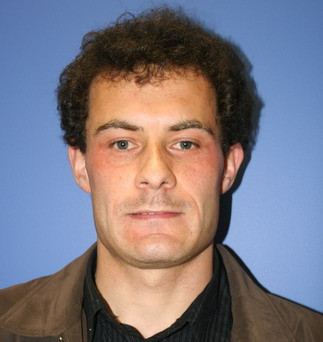John Sluyter from The University of Auckland has received a Pacific health research fellowship from the Health Research Council of New Zealand (HRC) to explore whether a new device that measures artery health could predict the risk of cardiovascular disease in Pacific communities.
Cardiovascular disease is increasing in Pacific peoples compared with Europeans. Mr Sluyter will use the $387,195 Pacific Health Research Postdoctoral Fellowship to study the reasons for this discrepancy. Using an instrument developed by Auckland-based company, Pulsecor, he will collect data on the arterial function of people taking part in a large four-year clinical trial of vitamin D supplementation. About 400 participants will be of Pacific decent.
The study will help determine if arterial function is an independent predictor of cardiovascular disease, if it varies between Pacific and other ethnic groups, and if it improves following vitamin D supplementation.
“My career plan is to make a major, long-term impact on improved health for Pacific people,” says Mr Sluyter.
The HRC has awarded $691,746 for Pacific health research in this year’s funding round, including 13 summer scholarships worth a total of $65,000.
Registered nurse Tuaupua Taueetia-S’ua from Victoria University of Wellington has been awarded a Pacific Health Research PhD Scholarship worth $110,555 to examine Samoan peoples’ understanding of cardiovascular health; explore practice nurses’ perceptions of Samoan peoples’ understanding; and develop strategies to improve health outcomes for the Samoan community. The award will help Mrs Taueetia-S’ua study full-time towards her PhD.
“I realise that to undertake this study full-time means I have to sacrifice work commitments. However, I perceive this as an investment that benefits the Pacific community’s health, which also impacts on the economic status of the whole country,” says Mrs Taueetia-S’ua.
University of Canterbury biology student Alexandria Tino, originally from South Auckland, has received a Pacific Health Research Masters Scholarship of $18,000 to study whether the naturally-occurring compound, resveratrol, found in grape skins and nuts can restrict the growth of metastatic ovarian cancer.
“Resveratrol is a non-toxic natural compound, and it’s safe to ingest in the form of food supplements. In addition, resveratrol is cheap and easily accessible. I strongly believe that ingestion of resveratrol can prolong survival of Pacific women with advanced ovarian cancer,” says Mrs Tino.
The HRC’s Chief Executive, Dr Robin Olds, says he and the assessing committees were very impressed by the high quality of applications for this year’s awards.
“Pacific health research helps to build the capacity and capability of Pacific peoples in research, and contributes to the Pacific knowledge base. The overall quality and standard of the applications this year was very high. We were particularly impressed by the number of high calibre postdoctoral and PhD applications received.”
For the full list of award recipients, go to the research repository.
